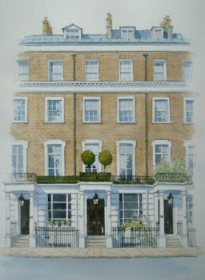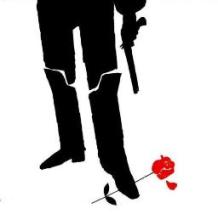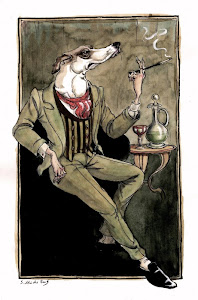 'In 1930, he had been received into the Roman Catholic Church, and after the war married into a delightful family of that faith, the Herberts. Thenceforth, he settled down to elaborate his impersonation of a crusty old country gentleman, collecting the requisite properties, both personal and household, and occasionally appearing in London in this role. Mr. J. B. Priestley and others have complained about the impersonation on the ground that the writer has been suffocated by the elaborate superstructure it has required. This seems to me absurd for two reasons—firstly, that Mr. Waugh remains an excellent writer, probably the most accomplished today in the English language, and, secondly, that his impersonation of a country gentleman is as integral a part of his writing as was George Orwell’s equally absurd converse impersonation of a down-and-out.'
'In 1930, he had been received into the Roman Catholic Church, and after the war married into a delightful family of that faith, the Herberts. Thenceforth, he settled down to elaborate his impersonation of a crusty old country gentleman, collecting the requisite properties, both personal and household, and occasionally appearing in London in this role. Mr. J. B. Priestley and others have complained about the impersonation on the ground that the writer has been suffocated by the elaborate superstructure it has required. This seems to me absurd for two reasons—firstly, that Mr. Waugh remains an excellent writer, probably the most accomplished today in the English language, and, secondly, that his impersonation of a country gentleman is as integral a part of his writing as was George Orwell’s equally absurd converse impersonation of a down-and-out.'— Malcolm Muggeridge on Evelyn Waugh





















3 comments:
Orwell was less of a d*ck to the women around him, though.
And much less of an ideologue. And actually went into the army to fight.
Wrong on all three counts, Fred. Congratulations! You should go into punditry.
"And actually went into the army to fight."
Evelyn Waugh was an officer of the Royal Marines and later the Royal Horse Guards from 1939 until 1945. He served in combat in North Africa, Crete, and Yugoslavia. His war experiences are central to some his best novels and short stories including Put Out More Flags, Work Suspended and Other Stories, Brideshead Revisited, and most notably his masterful WWII trilogy Sword of Honour.
Post a Comment